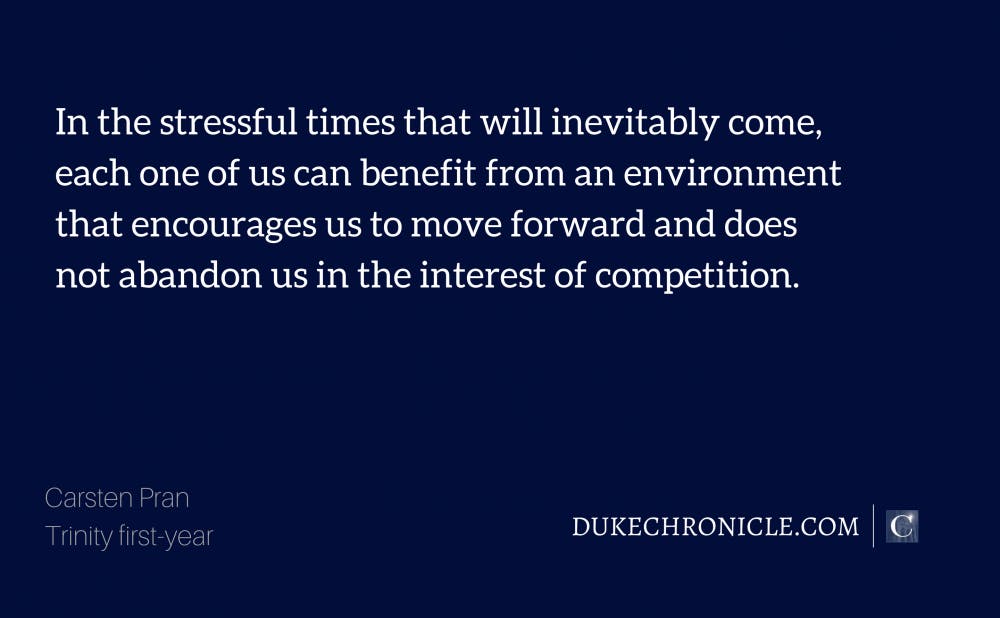Acknowledging our roots as an intrinsically collaborative species, I wonder if it is entirely unrealistic to imagine a society in which individuals give and receive assistance readily, regardless of personal identity. When I reflect on society’s current status though, I realize we are moving in quite the opposite direction. It appears that though our web of diverse, global communities becomes increasingly connected every year, our personal regard for others diminishes in tandem.
Perhaps we owe our shrinking spheres of regard to our self-imposed social barriers. Whether intentionally or instinctively, we tend to clump into subdivided masses in high-diversity settings, uniting along contours like race, religion, and political affiliation. These days we form such ‘tribes’ not to seek security from nonhuman dangers as our ancestors would, but rather to pursue a degree of protection from others with conflicting beliefs. While I still uphold the value of social identities, I also find that when we only readily assist those with whom we share nuclear commonalities, we not only rob ourselves of a more substantial support network, but we also deprive society of crucial synergy.
The dysfunctional community in Jesmyn Ward’s "Sing, Unburied, Sing" illustrates the consequences of such division. Rigid social barriers mar the story’s segregated Mississippi town, confining the novel’s black central family into self-sufficiency; the only refuge from surrounding racism and injustices. Under these conditions, the family members must depend entirely on each other, or otherwise simply themselves, for survival. On one hand, drug-addicted Leonie abandons her duties as a mother in an unbridled pursuit of her personal vices. On the other, patriarch Pop and young Jojo work tirelessly for terminally-ill Mam and toddling Kayla, oftentimes neglecting their own wellbeing in the process. This dichotomy between self-care and care for others reveals how divided communities hinder our ability to receive and reciprocate support effectively.
If the end goal is a reliable and extensive network in which our egoistic and altruistic interests exist in harmony, we must first destroy the prejudices which hinder us from doing so in the first place. Take the character Leonie for instance. Based on her preliminary description, it is easy for us to despise Leonie, blame her for her selfishness, and mark her as a helpless addict. However, when Ward forces us into Leonie’s perspective through shifting narration tactics, we develop a more compassionate understanding of the mother’s internal conflicts, thus allowing us, at the very least, to humanize her. Applied more generally, individuals can initiate reciprocal kindness with others simply by shedding their prejudices, understanding the social pressures others confront, and offering assistance with any act, no matter how small.
That being said, the road to balanced communion runs two ways. We cannot allow ourselves to utterly surrender to the whim of those who depend on us, lest we completely sacrifice our own personhood and well-being as Jojo and Pop had. In this sense, the mantra “Please remember to put on your own oxygen mask before assisting others.” holds true beyond the airplane seat.
Oftentimes, we find ourselves inundated with stress, stumbling with the cumbersome load of responsibility which makes it especially difficult to find time for ourselves, much less time for others. For this reason, as important as breaking down interpersonal barriers and offering a hand to others is, our ability to ask for and accept help is equally crucial.
During our time at Duke, amidst unparalleled diversity and competition, many of us may gravitate towards our social comfort zones and work exhaustedly to exude an aura of ‘effortless perfection.' These decisions will, in turn, endanger our ability to form necessary support networks from which we can derive and contribute mutual care. In the stressful times that will inevitably come, each one of us can benefit from an environment that encourages us to move forward and does not abandon us in the interest of competition. Though society at large may take more time to mend, if we individually work to promote a common understanding and free ourselves from the stigma of reaching out for help, I believe we can all create a campus in which altruism and self-care exist concurrently.
Carsten Pran is a Trinity first-year. This essay won the annual Duke Honor Council summer reading contest.
Get The Chronicle straight to your inbox
Sign up for our weekly newsletter. Cancel at any time.

